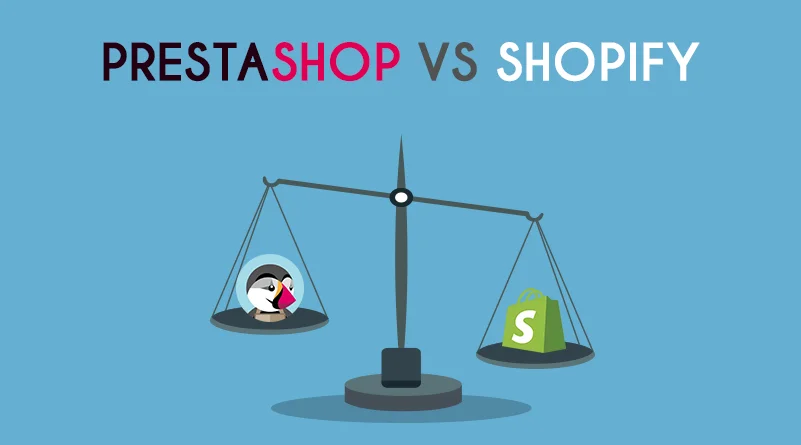Introduction
In Kenya’s fast-paced business environment, where startups are rising across Nairobi, Mombasa, and Kisumu, one skill often determines who thrives and who struggles — financial literacy. Understanding money management isn’t just for accountants; it’s a survival skill for every entrepreneur. Whether you’re running an online store, a creative agency, or a tech startup, your ability to make smart financial decisions directly impacts your business growth.
Financial literacy empowers entrepreneurs to make informed choices, manage risks, and sustain profitability. With platforms like E-Startups Kenya, businesses can now combine sound financial understanding with digital solutions to achieve long-term stability.

Understanding Financial Literacy
Financial literacy refers to the knowledge and ability to manage financial resources effectively. It goes beyond knowing how to save or spend money. It includes budgeting, investing, debt management, cash flow planning, and understanding financial statements.
In Kenya, where small and medium enterprises (SMEs) form over 90 percent of all businesses, many entrepreneurs struggle because they lack proper financial systems and understanding. According to a KNBS report, thousands of SMEs close annually due to mismanaged finances rather than lack of customers.
When you understand financial principles, you are able to:
Track income and expenses accurately.
Manage debt and avoid unnecessary borrowing.
Plan for growth and sustainability.
Make data-driven investment decisions.
How Financial Literacy Drives Business Success
Every successful business in Kenya stands on a foundation of strong financial management. Financial literacy enables entrepreneurs to interpret numbers, make sense of profit margins, and adjust strategies accordingly.
i. It improves decision-making: Knowing how to analyze profit and loss helps you know when to expand, hire, or scale back.
ii. It enhances accountability: Understanding your finances builds credibility with investors, partners, and clients.
iii. It promotes sustainability: Financially literate entrepreneurs build reserves, anticipate challenges, and keep their businesses running even during hard times.
For instance, a small fashion brand in Nairobi can use accounting tools to forecast demand and manage cash flow instead of relying on guesswork. By doing so, it stays profitable and avoids running out of capital mid-season.
Budgeting and Financial Planning
A budget is the backbone of business control. It allows you to allocate resources wisely, monitor spending, and evaluate performance.
Start by outlining your monthly income and expenses.
Set aside a fixed percentage for savings or reinvestment.
Review your budget every month to identify leaks or unnecessary costs.
At E-Startups Kenya, entrepreneurs can integrate custom financial dashboards and expense tracking systems into their operations. These digital tools help monitor cash flow in real time, preventing overspending and ensuring that every shilling works toward growth.
Managing Business Debt
Debt can either build your business or destroy it depending on how you manage it. Financial literacy teaches entrepreneurs to use debt strategically — not emotionally.
i. Borrow only for investments that generate returns, not to cover daily operations.
ii. Compare interest rates and repayment terms before committing.
iii. Always track your debt-to-income ratio to stay in control.
For example, a restaurant owner in Nakuru may take a short-term loan to upgrade kitchen equipment. If the decision is backed by clear revenue projections and a repayment plan, it becomes a smart move rather than a burden.
Digital finance tools provided by E-Startups Kenya help entrepreneurs track repayments, monitor loan balances, and receive alerts before deadlines, avoiding penalties and improving creditworthiness.
Importance of Record Keeping
Many Kenyan entrepreneurs operate without proper financial records, relying on memory or informal notes. This approach limits growth because you can’t measure what you don’t track.
Maintaining accurate financial records allows you to:
Know your real profits and losses.
File taxes correctly and avoid penalties.
Present credible financial statements when applying for funding.
Identify which products or services bring in the most revenue.
With E-Startups Kenya’s cloud-based management systems, record keeping becomes simple. Every transaction, invoice, and receipt is stored securely online, accessible anytime, anywhere.

Investing Wisely for Growth
Entrepreneurs who understand financial literacy know that saving alone isn’t enough; investing strategically accelerates business growth. Whether you’re expanding operations, venturing into eCommerce, or adding new services, investments must align with your long-term vision.
i. Start by analyzing the potential return on investment (ROI).
ii. Avoid emotional decisions — rely on numbers and market research.
iii. Diversify your investments to reduce risk.
For example, investing in digital transformation — such as website development, automation, and CRM systems through E-Startups Kenya — pays off by reducing manual work and attracting more clients online.
Building Financial Discipline
Financial literacy is useless without discipline. Many entrepreneurs know what to do but fail to follow through. Developing consistent habits such as saving profits, cutting waste, and monitoring expenses builds resilience.
Separate personal and business finances.
Pay yourself a fixed salary, not random withdrawals.
Reinvest profits into tools or strategies that enhance efficiency.
A disciplined entrepreneur doesn’t just chase revenue — they manage it. Through E-Startups Kenya’s automation tools, businesses can track income streams, set spending limits, and automatically allocate funds to different accounts, encouraging better control.
The Role of Technology in Financial Management
Technology has simplified financial management for entrepreneurs. From mobile banking to accounting software, the digital space now offers tools that save time and reduce human error.
E-Startups Kenya integrates financial management systems such as:
Cloud-based accounting for real-time tracking.
AI dashboards that analyze profits, expenses, and performance.
M-Pesa and card payment integrations for smooth transactions.
Automated reporting tools for monthly summaries.
By combining digital tools with financial literacy, entrepreneurs can understand not just where their money goes but also how to make it work smarter.
Frequently Asked Questions
1. What is financial literacy and why is it important for entrepreneurs?
Financial literacy is the ability to understand and manage finances effectively. It’s essential for entrepreneurs because it improves decision-making, promotes sustainability, and reduces business risks.
2. How can financial literacy prevent business failure in Kenya?
Many startups collapse due to poor financial management. Financial literacy helps entrepreneurs plan budgets, manage cash flow, and control expenses — ensuring survival during tough times.
3. What are the best tools for managing business finances?
Tools like QuickBooks, Wave, and E-Startups Kenya’s custom CRM systems provide automated tracking, expense management, and reporting to simplify business finances.
4. Can E-Startups Kenya help with financial management systems?
Yes. E-Startups Kenya designs and integrates financial dashboards, CRMs, and automated tracking systems tailored to Kenyan entrepreneurs and SMEs.
Call to Action
Your business deserves more than trial and error — it deserves clarity, strategy, and smart financial systems. By mastering financial literacy and leveraging technology, you can turn your business into a sustainable, profit-driven venture.
Let E-Startups Kenya help you build that foundation with custom financial dashboards, automation tools, and digital solutions designed for growth. Visit E-Startups Kenya today and transform the way you manage your money, your time, and your business success.




























